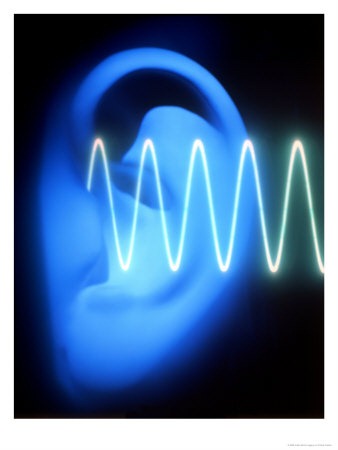 Two small studies looking at the effectiveness of an innovative method of sound therapy may lead to a revolution in the way thatmild hypertension and migraine are treated.
Two small studies looking at the effectiveness of an innovative method of sound therapy may lead to a revolution in the way thatmild hypertension and migraine are treated.
The studies used a neuro-technology called high-resolution, relational, resonance based, electro-encephalic mirroring, or HIRREM for short.
HIRREM uses sensors that are placed on the scalp that measure the brain's electrical activity and reveal any imbalances between the left and right brain, and hyperarousal.
Professor Hossam A. Shaltout, from the Hypertension and Vascular Research Center at Wake Forest School of Medicine in Winston-Salem, NC, where the HIRREM system was developed and which carried out the research, explains the premise of his research as follows:
"Most people have relatively balanced electrical activity between the right side and left sides of the brain.
Imbalance, with one side dominant, or more active, may reflect autonomic dysregulation associated with the effects of chronic stress, which is thought to play a role in high blood pressure, migraines, insomnia depression, hot flashes, and more."
HIRREM monitors the brain's electrical activity. As it registers the levels, it translates them into an audible signal, which it repeats back to the person whose brain is being monitored. This real-time feedback has a significant effect on the brain's output. Professor Shaltout explains: "Gradually, and on its own, with no conscious, cognitive activity required, the electrical pattern tends to shift towards improved balance and reduced hyperarousal."
The theory is that trauma, whether physical or otherwise, can lead to disturbances in the brain's normal activity. For instance, if the brain's fight-or-flight (sympathetic) nervous system is activated and is then not able to return to normal, it could be unhealthy and contribute to disease.
Although HIRREM is not a medical device it does have the potential to be used in a medical setting.
The first study involved 10 participants with stage one hypertension. After an average of 17.7 HIRREM sessions, spread over an average of 10.2 days, the patients showed a significant improvement.
On average, the researchers measured a reduction in systolic blood pressure from 152 to 136 millimetres of mercury, and a reduction in their diastolic pressure from 97 to 81 millimetres of mercury. Insomnia and anxiety levels also improved.
In the second study, 52 adults with migraine were treated. They received an average of 15.9 HIRREM sessions over 9 days. Patients reported improvements in insomnia, headaches, and mood.
These are small individual studies however, they are part of a larger research program that has enrolled over 400 participants.
Professor Shaltout added, "If these findings are confirmed in larger controlled studies, HIRREM may prove to be a valuable new approach for brain-based healthcare."
The results of the two studies were recently presented at the American Heart Association's Council on Hypertension 2016 Scientific Sessions.
